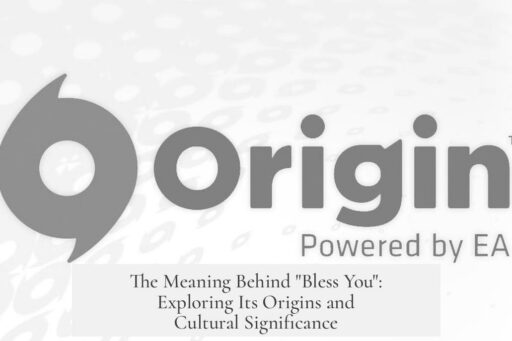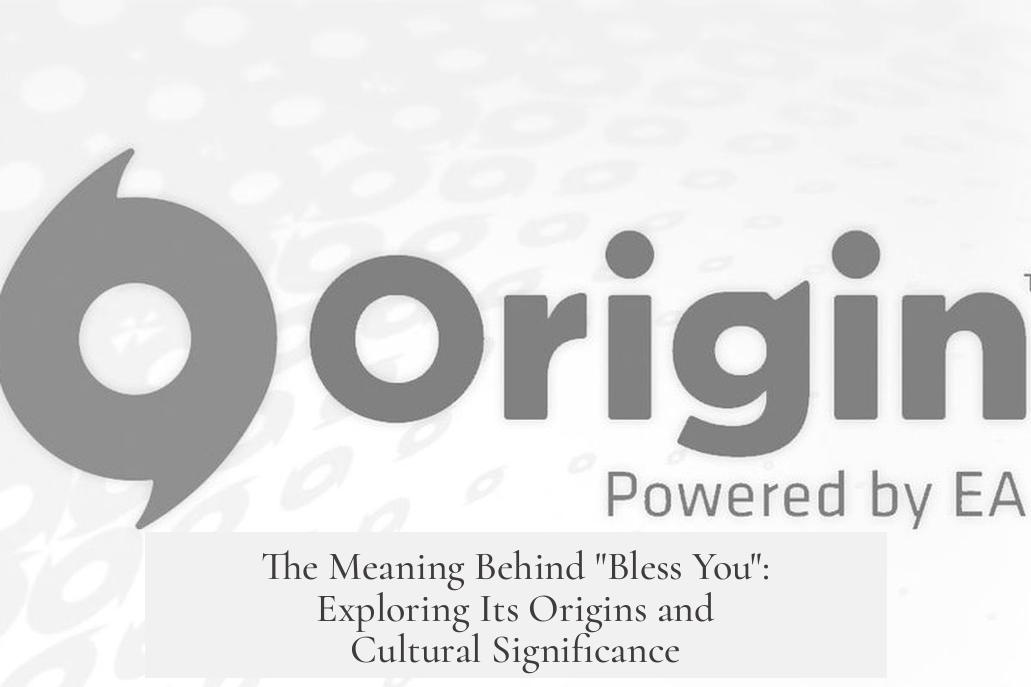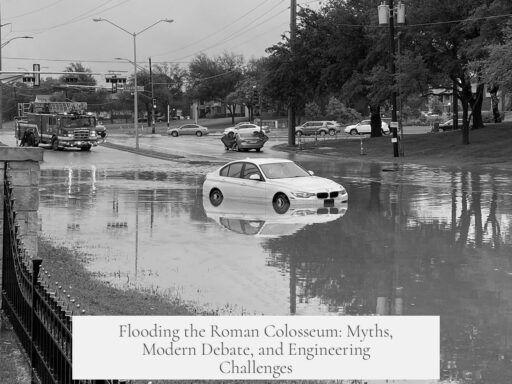The origins of “Bless You” trace back to ancient and medieval cultures that link sneezing with health, fortune, and spiritual well-being. Sneezing often represented an important bodily and spiritual event. The phrase emerged as a verbal protection or wish for good health after a sneeze, based on long-held medical and cultural beliefs in Europe and the Near East.

In many Mediterranean societies, sneezing carried symbolic and practical significance. Ancient texts such as Homer’s Odyssey depict sneezes as portents, foretelling events or outcomes. For example, when Telemachus sneezed in Odyssey Book 17, Penelope interpreted it as a sign of the suitors’ forthcoming demise. Egyptian-Greek magical papyri also associate multiple sneezes with good health, linking physical events to spiritual interpretations.
The medical understanding of sneezing comes from Greek physician Galen, whose writings influenced both medieval Islamic and European medicine. Galen saw sneezing as a process connected directly to the brain. He described it as a method for releasing excess steam and mucus from the body, distinct from phlegm produced in chest coughs. Sneezing typically helped restore balance by expelling harmful substances. However, sneezing when suffering chest colds could worsen illness, as it irritated the chest further. This nuanced view persisted in medical texts from the Islamic Golden Age, showing a transmission of Greek thought across cultures.

Culturally, sneezing also connected to vital forces and the soul. In some Jewish traditions, sneezing indicated a person’s temporary restoration to life. Medieval Christian folklore credited sneezing with aiding childbirth, suggesting divine or spiritual connotations. Literature and tales explicitly linked sneezing to blessings and good health. These beliefs reflected the idea that the strength or soul, often associated with the brain, was momentarily exposed during a sneeze. In early modern literature, sneezing related metaphorically to the exchange of souls or breath through the mouth, drawing parallels to a kiss’s symbolic power.
The act of blessing a person after a sneeze arose from a desire to protect or promote good health and fortune. Sneezing could herald either positive or negative outcomes, making the blessing a form of reassurance or warding off evil. The Christian Friedrich Garmann mentioned a superstition where persistent sneezing in the same place foretold death, reflecting the ambivalence toward sneezing’s significance.

Historical anecdotes show the gesture’s antiquity. For example, a story from the Arabian Nights recounts a teacher making pupils cross their arms and wish him health after sneezing. Such practices, found across civilizations, showcase the depth of the custom.
| Aspect | Details / Cultures |
|---|---|
| Medical Origin | Galen’s writings; sneezing rids excess steam/mucus; linked to brain; medieval Islamic medical texts preserve this. |
| Spiritual & Superstitious | Life force/soul connection; Jewish and Christian folklore; sneezing as a sign of temporary life or blessing. |
| Portents & Omens | Ancient Mediterranean texts; sneezing indicates good or bad fortune; e.g., Odyssey, Egyptian-Greek magic papyri. |
| Social Practice | Verbal blessing post-sneeze common in Europe and Near East; seen as a protective or health wish act. |
In summary, the phrase “Bless you” following a sneeze is more than courtesy. It arises from an ancient worldview that sees sneezing as a significant event affecting health and spirit. The gesture intends to protect the sneezer amid uncertain outcomes that sneezing symbolized. While its exact moment of origin remains unclear, the reasons are deeply rooted in medical theory, spiritual belief, and superstition from Mediterranean and Near Eastern cultures.
- “Bless You” stems from long-standing beliefs associating sneezing with health and soul.
- Galen’s medical views shaped the understanding of sneezing’s physiological role.
- Sneezing functioned as a sign of good or bad omens in various ancient texts.
- Spiritual traditions connected sneezing with life’s vital forces and blessings.
- Wishing health after sneezing became a protective social custom across cultures.
The Origins of “Bless You”: Why Do We Say It After a Sneeze?
Ever wondered why we say “Bless you” when someone sneezes? The simple phrase hides an ancient, tangled story of medicine, superstition, culture, and even soul-swapping. There’s no precise moment time-stamped as its birth, but the “why” stretches across millennia and civilizations. Let’s unravel what makes this tiny phrase so historically rich and medically fascinating.
When you say “Bless you,” it’s more than just polite reflex. It’s a nod to an old belief system carried through European, Near Eastern, and Mediterranean cultures for thousands of years. Back in the day, sneezing was no small thing. It was tied to health, soul, and sometimes even fate.
Ancient Sneezing Wisdom: More Than a Reflex
The Greeks, especially the famous doctor Galen, saw sneezing as a deeply physiological event connected directly to the brain. This wasn’t just about throwing dust out of your nose. Galen believed sneezing released excess “steam” and mucus—distinct from the phlegm linked to chest coughs. A sneeze was mostly restorative, a way for your body to clear itself.
But watch out—if you’re sneezing because of a chest cold? That was thought to be bad news. The violent expulsion irritated the lungs, making illnesses worse. This medical view wasn’t just a Greek idea. Medieval Islamic scholars like al-Maliki adopted it, and it wound up in medical textbooks across cultures, proving this isn’t just ancient folklore but early science.
Where Medicine Meets Magic: Sneezing as a Portent
Medicine aside, sneezing caught people’s imaginations long ago. Through ancient Mediterranean writings, sneezes were often seen as portents—signs of good or bad luck. In Homer’s Odyssey, for example, Telemachus sneezes and Penelope interprets it as a good omen: all her troublemakers were destined to die. Talk about a powerful sneeze!
Even Egyptian-Greek magical papyri contain sneezing-related spells—like sneezing twice meaning someone’s healthy and returning home. The sneeze was a mysterious signal connecting the mundane with the magical.
The Soul Connection: Sneezing and Life Force
Here’s where it really gets wild. Ancient thinkers tied sneezing to the soul or life force itself. The brain’s role in sneezing extended metaphorically to the breath and spirit. In Jewish folklore, sneezing was the “first sign” that someone was momentarily returned to life, almost like a reboot. That’s quite a status for such a sudden spasm.
Medieval Christians saw sneezing as helpful even in childbirth, a blessing aiding mothers in labor. Blessings after sneezes weren’t just superstitions—they were prayers for health and vitality. Literary anecdotes from the past explicitly mention this connection, showing that the blessing was more than politeness—it was a conscious wish for wellness.
In early modern literature, sneezing metaphorically links to the exchange of souls via the mouth—like in a kiss—which sounds poetic but also ties into why people might feel compelled to say “Bless you.” Saying it is like protecting or sealing someone’s soul after a sneeze.
The Double-Edged Sword: Good and Bad Omens
Not all sneezes were cheerful signs. According to Greek medicine, while sneezing could be restorative, it might also hint at serious illness. Christian Friedrich Garmann in the late 1600s documented superstitions about sneezing multiple days in a row in one place—a supposed death omen for someone in the household.
This shows people have long seen sneezing as ambiguous. A sneeze could mean health or trouble. So blessing the sneezer was a way to nudge fate toward the positive.
Why “Bless You” Stuck Around
So, why do we still bless sneezers? This tradition is rooted deep in history, spanning cultures that linked sneezing with health outcomes, spiritual concerns, and superstitions. It persists not because we worry about souls escaping or death omens but because it evolved into a polite custom that acknowledges a basic human jolt.
Next time you say “Bless you,” remember you’re echoing thousands of years of human attempts to understand the body and soul’s delicate dance—and maybe just hoping someone catches their breath without trouble.
Practical Tips: When and How to Say “Bless You”
- If you’re sneezing repeatedly in the same place, maybe it’s worth a polite “Bless you”—ancient wisdom suggests a touch of concern.
- In tight-knit groups or classrooms, like the teacher in the Arabian Nights who asks pupils to bless his sneezes, it can be a bonding ritual rather than just empty words.
- Remember, sneezing can reflect health. If someone sneezes oddly or often, perhaps a compassionate follow-up, not just a quick “Bless you,” is the modern respectful move.
The Cultural Journey: Across Time and Space
The phrase “Bless you” reflects human culture’s journey through fear, curiosity, and kindness. From Galen’s anatomy to Middle Eastern tales, from Greek portents to Christian blessings, the sneeze connects us all. So why has this little phrase endured? Because it’s a mashup of human instinct to protect, heal, and connect in a moment lasting less than a second.
Isn’t it amazing that such a tiny sound—the sneeze—carries such history and meaning? What will future generations think when they say “Bless you” after someone sneezes? Perhaps they’ll marvel at our ancient wisdom, or maybe they’ll just smile politely, unaware of its rich past.
One thing is clear: “Bless you” isn’t just manners—it’s a mini time travel through medical science, superstition, and spiritual care. So next time you sneeze, appreciate all the history packed into that small phrase—because it’s truly a blessing handed down through ages.
Why do people say “Bless You” after someone sneezes?
The phrase comes from ancient Mediterranean beliefs linking sneezing to a person’s life force or soul. Blessing someone after a sneeze was meant to protect their health and fortune.
How did ancient medical views shape the practice of saying “Bless You”?
Greek physician Galen saw sneezing as a way to expel excess mucus and “steam” from the head, aiding health. This view influenced medieval and Islamic medical ideas that connected sneezing with well-being.
Was sneezing always considered a good omen historically?
No. While sneezing was often seen as a sign of life force and health, it could also indicate illness or bad luck. Some traditions even linked repeated sneezing to warnings of death.
What cultural stories show blessings after sneezing?
The Arabian Nights include teachers having pupils wish good health after sneezing. In the Odyssey, sneezing is viewed as an omen, and Jewish folklore treats sneezing as a brief return to life.
How is sneezing connected to the soul or life force?
Many cultures believed sneezing involved the soul or vital energy leaving or returning to the body. Blessings were meant to keep this life force safe during a sneeze.




